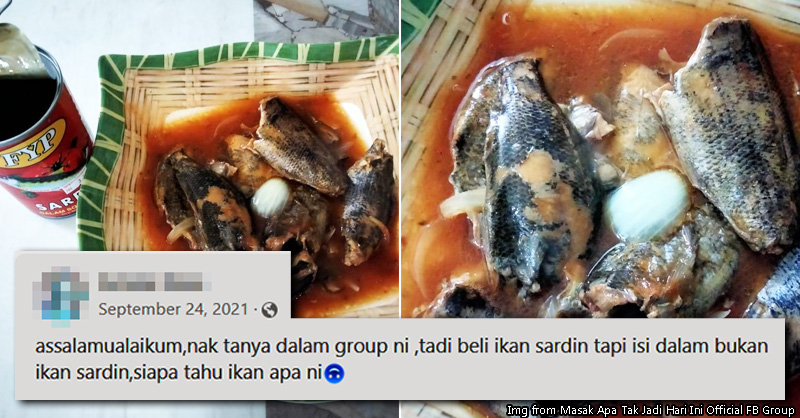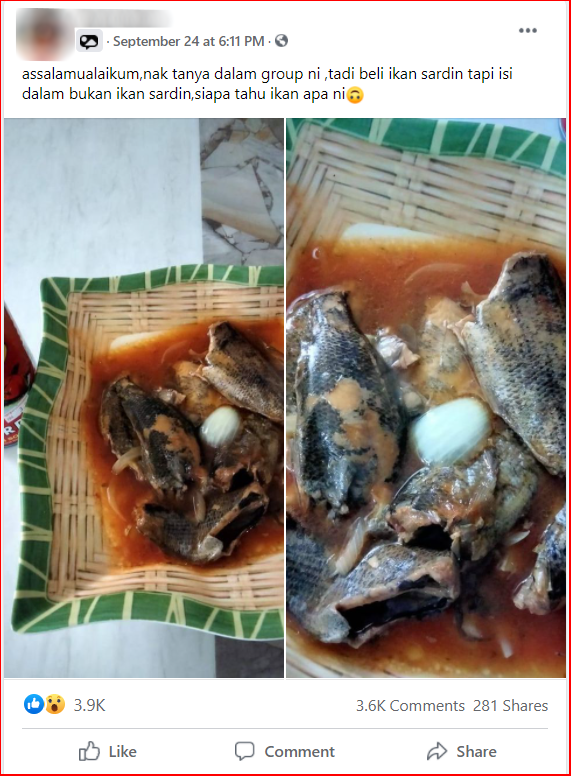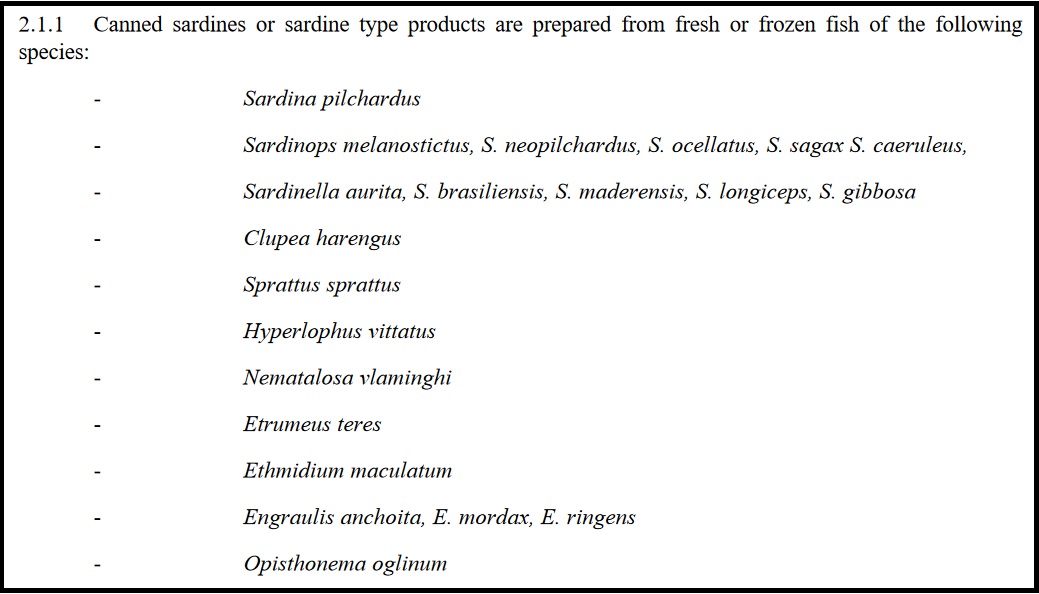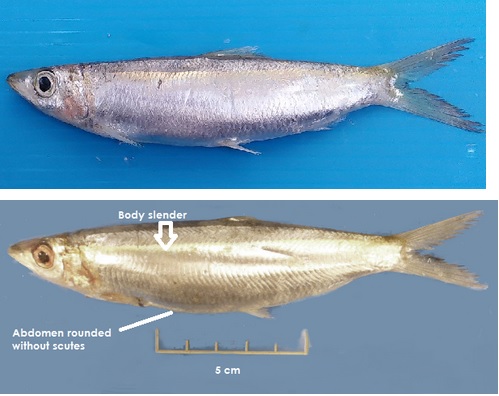Some canned sardines look weird. Are they real?

- 72Shares
- Facebook70
- WhatsApp2
If you’re a huge fan of canned sardines, you may sometimes find that the contents of a different brand may look a bit… questionable.

WHAT ARE THOSE?! Img from Ariana Rose @ FB.
When such disappointing things happen, it’s easy to think that you’ve been cheated or you got some kind of ciplak China brand. However, the weird-looking fish you got might still technically be sardines. It’s just that…
There’s no exact specification when it comes to ‘ikan sardin’
Why is a raven like a writing desk an ikan sardin like a Tupperware?

No, we haven’t lost our marbles yet. Gif from Pinterest.
Because just like we have a tendency to call any plastic container with a lid ‘Tupperware’, so do we have a tendency to call any small, silvery, oily sea fish ‘sardines’. Yes, sardines aren’t an exact species of fish, but a group of same-same fish species collectively called as sardines. What counts as sardines may differ by region: the UN’s Food and Agriculture Organization (FAO), for example, listed 21 species that are acceptable for canned sardines.

Screengrabbed from FAO’s Codex.
Even the most sardine of this sardines, the European pilchard (Sardina pilchardus), isn’t always a sardine: only young European pilchards are categorized as sardines, while the older and bigger ones are sold as pilchards. So we have a loose definition of what makes a fish ‘sardine’, but what about the fish that goes into Malaysian sardine cans?
Well, after combing our Advertising Standards Code and our 1985 Food Regulations, it seems that we haven’t specified which species of fish can be put into cans labelled as ‘sardines’, so it seems that any small oily fish can be sardines here. At least, as far as we can tell. So don’t be surprised when you find weird fish in sardine cans: they’re probably still sardines in the manufacturers’ books, however unpalatable and unappetizing they may look.
OMG so what have I been eating then?
Not every sardine brand stated what went into their cans, but thankfully, two of the most popular brands did: Ayam Brand and King Cup. And no, we’re not sponsored to write this. Ayam Brand had a bit of a backstory to it. According to lore, when Alfred Clouet, the Frenchman founder of Ayam Brand started canning sardines in Malaya back in the late 1800s, he chose to can sardines from local wet markets to ensure the fish is always in supply.

The sardines when they realize they’ll have to always be available. Gif from Tenor.
We can assume Ayam Brand sardines back then were made of local sardines, like basung or selayang (both can often be found sold in pasars as sardines). However, the modern Ayam Brand claims that their sardines are “exclusively of the Sardinops or Genus Sardina species from the North-Western and Eastern Pacific waters, Southern waters of the Indian Ocean and North-Western Atlantic waters.”
Meanwhile, King Cup‘s manufacturers claim that their sardines and mackerels are “directly imported from Mexico and South Africa“, so they probably don’t use local fish. While they didn’t specify the exact species, another food site stated that King Cup uses ‘fresh Tamban fish‘, which while vague, is technically a sardine: it’s from the Clupeidae family.

What a stereotypical tamban may look like. Img from Malaysia’s Fisheries Research Institute.
Either way, the takeaway from this is there are atas sardines, and bawah sardines, but as long as it’s small and oily it’s probably still a sardine. Case closed! If you want more shocking tea about the food we eat, check out our other article on 5 other foods that aren’t what we think they are.
- 72Shares
- Facebook70
- WhatsApp2
